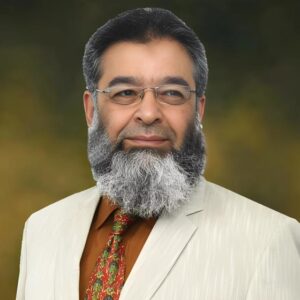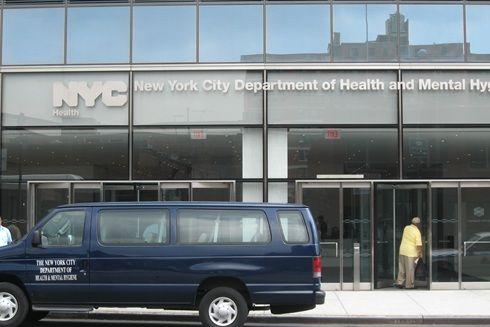
by Muhammad Mohsin Iqbal
Throughout history, nations have endured wars, occupations, and forced migrations, yet the idea of an entire population being asked to leave its homeland and settle elsewhere remains an extraordinary and deeply unsettling proposition. The notion of relocating a country’s inhabitants to another land raises profound ethical, legal, and political questions. Such an act would not merely be displacement; it would amount to a forced eviction, a violation of sovereignty, and, in many cases, an outright usurpation.
Forced migration, a tragic phenomenon that has scarred human history, continues to raise these questions on both humanitarian and legal fronts. Across the ages, countless nations have been compelled to leave their homelands due to war, persecution, or environmental calamities. These displacements leave deep marks on humanity, reminding us of the fragility of peace and the enduring struggle for justice. The question of whether a country or its people can be forcibly removed is not merely theoretical but a pressing issue that touches upon the very foundations of international law and morality.
The United Nations, as the principal international body responsible for maintaining global peace and security, upholds the sovereignty of nations and the rights of peoples to live in their own land. The UN Charter explicitly forbids the forceful acquisition of territory and displacement of populations. The principle of self-determination, enshrined in international law, grants people the right to govern themselves without external coercion. The Universal Declaration of Human Rights (UDHR), adopted in 1948, affirms the right of individuals to live freely in their homeland without fear of persecution or expulsion. It states that no one shall be arbitrarily deprived of their nationality or exiled from their country. Any attempt to forcibly remove an entire population would constitute a gross human rights violation, contradicting fundamental international laws that protect people from ethnic cleansing and genocide.
History provides numerous examples of forced migration, each a testament to the suffering and resilience of displaced populations. The Palestinian displacement, beginning in 1948 during the Arab-Israeli War, stands as one of the most enduring and contentious cases. Hundreds of thousands of Palestinians were driven from their homes, creating a refugee crisis that persists today. Many found shelter in neighboring countries such as Jordan, Lebanon, and Syria, while others scattered across the globe, forming a diaspora that continues to yearn for a return to their ancestral lands. Similarly, the Rwandan Genocide of 1994 forced millions of Tutsis to flee their homes amidst unimaginable violence and loss. More recently, the Syrian Civil War, which began in 2011, has displaced over 12 million people, with 6.5 million fleeing the country entirely. These examples underscore the devastating consequences of forced migration: the loss of livelihoods, the erosion of cultural identity, and the creation of generations of refugees who struggle to rebuild their lives.
The United Nations has established frameworks to address the plight of displaced populations. The 1951 UN Refugee Convention defines the rights of refugees and the obligations of states to protect them, explicitly prohibiting their forced return to countries where they face persecution, a principle known as non-refoulement. Additionally, the Sustainable Development Goals (SDGs) include targets aimed at reducing inequalities and addressing the needs of displaced populations. Goal 10 emphasizes the importance of safe, orderly, and regular migration, reflecting the international community’s commitment to upholding human dignity. The United Nations High Commissioner for Refugees (UNHCR) plays a critical role in providing humanitarian assistance to refugees and advocating for their rights, ensuring that forced migration is addressed through legal and humanitarian channels rather than coercion or violence.
At the heart of the issue lies the question of Palestine. For over seven decades, Palestinians have faced occupation, displacement, and systemic efforts to erase their identity. The idea that they could be forcibly relocated to another land is not only morally indefensible but also legally impermissible. Palestinians have a historical and legal right to their land, recognized by numerous UN resolutions and international legal instruments. Any attempt to evict them and resettle them elsewhere would not be a peaceful solution but rather a continuation of historical injustices. It would amount to a de facto annexation of Palestinian land, a policy that has been consistently condemned by the international community. The Fourth Geneva Convention, which governs the treatment of civilians in times of war, explicitly prohibits the transfer of populations under occupation, further underscoring the illegality of such actions.
Would the world allow such an act of usurpation? History suggests that international responses to such situations are often dictated by political interests rather than moral principles. While international law is clear, enforcement is selective, often depending on the will of powerful nations. The so-called “might is right” doctrine, where power dictates the fate of nations, has been seen throughout history, from colonial occupations to modern-day conflicts. The analogy of the “stick and buffalo” formula is apt in this context: those with power dictate the rules, regardless of legality or justice. In the case of Palestine, the equation of force and influence is heavily skewed, with powerful international players shaping the discourse. The support of major Western nations for Israel, despite repeated violations of international law, underscores this reality. If justice were to prevail, international law would be enforced uniformly, preventing any nation from forcibly displacing another.
It is difficult to ignore the historical context in which the Jewish people, who suffered expulsions and persecution, particularly in Nazi Germany and elsewhere in Europe, now stand as the dominant force in displacing another people. The irony is profound and tragic. The pain of historical suffering should have engendered a commitment to justice and human rights, yet instead, history appears to be repeating itself—this time with Palestinians as the victims. It is not merely a case of historical vengeance but a political reality shaped by power dynamics, geopolitical interests, and ideological narratives.
Ultimately, the forced migration of any population, whether Palestinians or others, represents a profound violation of human rights and international law. The global response to forced migration must be guided by a commitment to justice, compassion, and the rule of law. Diplomatic solutions, grounded in dialogue and mutual respect, offer the best hope for resolving conflicts that lead to displacement. Violence and coercion have no place in a world that aspires to peace and justice. The United Nations and the global community have a duty to prevent such actions and to ensure that displaced populations are protected, supported, and given the opportunity to rebuild their lives.
History has shown us the devastating consequences of forced displacement. It is incumbent upon us to learn from these lessons and strive for a world where no one is compelled to leave their homeland against their will. The principles enshrined in the UDHR and other international treaties must serve as our guide, reminding us that the dignity and rights of every individual are inviolable. Only through a collective commitment to justice and humanity can we hope to prevent the tragedies of forced migration and build a more equitable and peaceful world.




